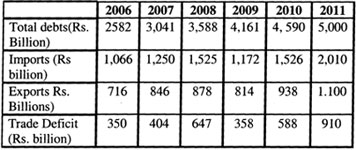As the England cricket team commences its 2012 tour of Sri Lanka, the Tamil Youth Organisation UK (TYO UK) and the undersigned UK university Tamil societies continue to call on the England and Wales Cricket Board to suspend all bilateral arrangements with Sri Lanka's national cricket team until there has been meaningful progress on ensuring accountability and justice for war crimes and crimes against humanity. We call for an immediate end to the on-going human rights violations being committed by the Sri Lankan Government and its security forces in the North-East of the island.
Almost three years after the end of the armed conflict, and a year since we first called for a boycott of Sri Lankan cricket - in line with wider trade sanctions, and economic isolation as a means to urging Sri Lanka to act - there has been no significant progress on human rights or accountability. Instead, the time and space afforded to Sri Lanka by the international community, in the name of development, reconciliation and international engagement, have led to an ever increasing and brazen disregard for human rights by the Sri Lankan state and fiercer attempts to prevent accountability and justice.
Instead of repealing emergency laws, scaling down the military, and working to protect and safeguard individual rights and freedoms, the Sri Lankan state has been emboldened by the international community’s continued sanctioning of impunity. It is pursuing an agenda of increased militarisation and colonisation of the Tamil areas, as well as widespread, and systematic human rights abuses. Reports published by international human rights organisations over the past year, have detailed evidence of on-going human rights violations against Tamil civilians in the North-East of the island, including abduction, illegal detention, torture, the torture of asylum seekers deported from the UK, extra-judicial killings, sexual violence, and the relentless clamp down on media freedom.
Sri Lanka’s on-going disregard for human rights is against a back drop of impunity. Three years post-conflict the credible allegations of war crimes and crimes against humanity, resulting in the deaths of at least 40,000 Tamil civilians as detailed within a UN Panel of Experts report, remain unaccounted for. The past year has seen nothing but the failure of Sri Lanka’s internal inquiry and continued indignant resistance towards an independent process.
The Sri Lankan government’s attempt to stave off international demands for justice and accountability, the Lessons Learnt and Reconciliation Commission (LLRC), published its findings at the end of 2010. However, the LLRC has been rejected by leading human rights organisations, such as Amnesty International, Human Rights Watch and the International Crisis Group, as lacking the necessary mandate, impartiality and expertise (a criticism detailed in the LLRC’s own report). Indeed when the LLRC’s report was finally released last year, it simply absolved the military and the government from any wrongdoing, failing to address credible allegations made by the UN Panel of Experts.
Not only has the Sri Lankan government proved itself unable to provide the victims with justice, but it continues to exhibit itself as unwilling to do so. Despite having had the necessary time and space, the government has failed to implement the recommendations of its own commission. The government’s insincerity was illustrated in its indignant resistance to a resolution recently passed at the 19th session of the UN Human Rights Council in Geneva, asking Sri Lanka to merely implement its very own recommendations and detail a suitable timeframe in which to do so.
It is at this juncture, after another year of impunity, ineptitude and human rights violations, that we once again urge Britain to fulfil its duty and send a clear political message to Sri Lanka. The magnitude and gravity of Sri Lanka’s crimes, and on-going unrestrained violations of human rights, necessitate decisive action, and a strong and principled stance by the UK government and the England and Wales Cricket Board.
Last year the Minister for Sports and Olympics, Hugh Robertson MP, rejected calls by the TYO UK to suspend all sporting ties with Sri Lanka. Mr Robertson expressed faith in the Sri Lankan government to exhibit ‘fully inclusive progress which addresses the underlying causes of conflict’ and the possible reconciliatory effects of sport. Whilst we in principle share this belief, in the case of Sri Lanka the cricket team is used as a cynical tool to whitewash the image of the country on the international stage, allowing the government to continue to act with impunity. The past year only stands to vindicate this.
Dogged by allegations of corruption and institutional racism for many years, the Sri Lankan cricket board is now inseparable from the Sri Lankan state after elections to the board in November were marred by government intervention and the withdrawal of several candidates due to political pressure. The Sri Lankan cricket team which toured the UK last year, included an aging government minister who was widely believed to have been selected due to his political sway, rather than current sporting prowess. Meanwhile, the very military which stands accused of war crimes and crimes against humanity has been charged with the maintenance and running of three of the largest cricket stadiums in Sri Lanka.
In the case of Sri Lanka, sport, along with arts, trade, and tourism, is inseparable from politics. Another year of cricket with Sri Lanka’s national team, is at best another year of apathy, and at worst, another year of sanctioning impunity.
The England cricket team must take a principled stand in defence of human rights and justice, suspending all bilateral engagements with Sri Lanka and boycott the ICC Twenty20 world cup, which is to be played in Sri Lanka later this year. The shunning of the country’s sports teams, in conjunction with economic sanctions and political isolation, such as a proposed boycott of the Commonwealth Heads of Government Meeting due to be held in Sri Lanka next year, will send a clear message of international abhorrence at the government’s conduct. Continuing links, be they trade or sport, lend the government greater legitimacy and effectively endorse its failure to cease its violations of human rights.
We request the UK government to reconsider its stance and take meaningful action by suspending all sporting ties with Sri Lanka and calling for an international independent investigation into the credible allegations of war crimes and crimes against humanity.
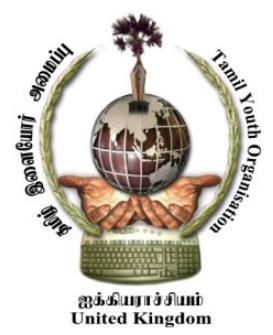 |
Tamil Youth Organisation UK |
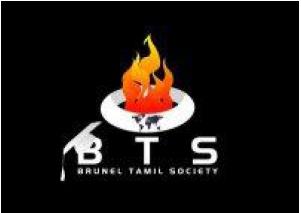 |
Brunel University Tamil Society
|
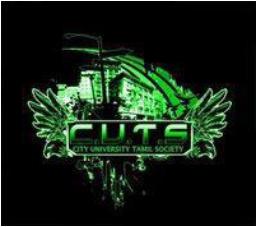 |
City University Tamil Society |

|
University of Hertfordshire Tamil Society
|
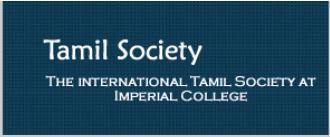 |
International Tamil Society Imperial College London
|
 |
King's College London Tamil Society
|
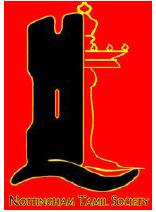 |
University of Nottingham
Tamil Society |
 |
Queen Mary University of London Tamil Society
|
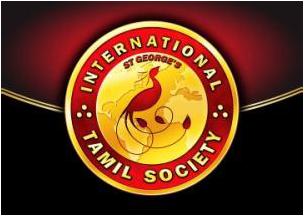 |
International Tamil Society St George's, University of London
|
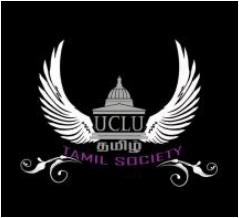 |
University College London Tamil Society
|











